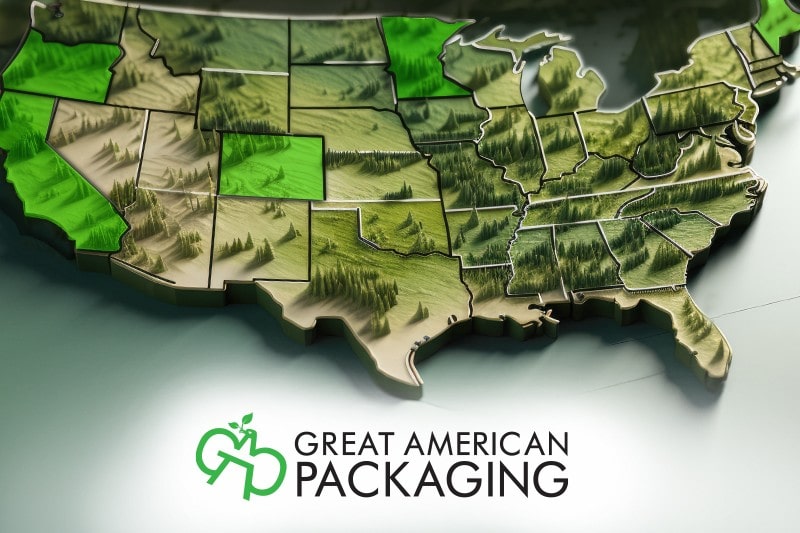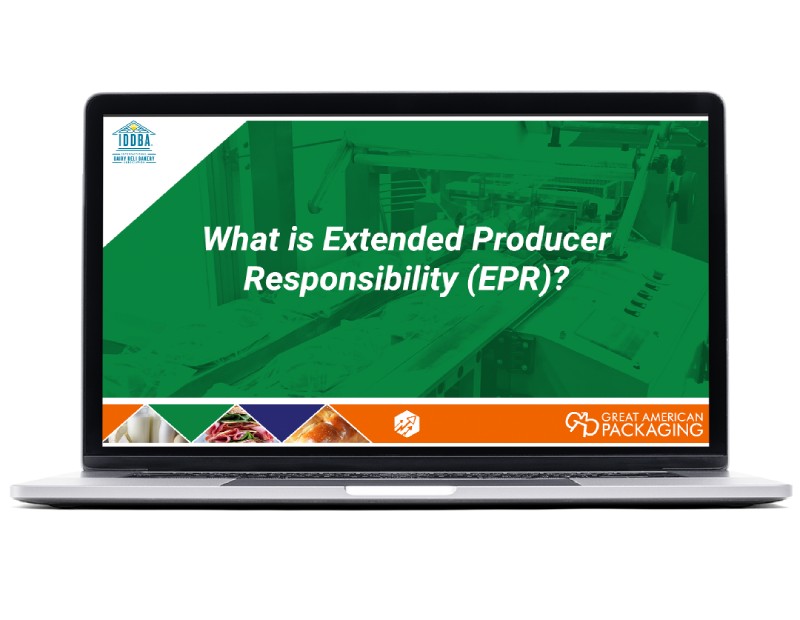
EPR PACKAGING LEGISLATION: IF YOU ARE A BRAND OWNER, YOU WILL BE AFFECTED
2024/05/29 2:22 pm
Deadlines to adhere to EPR requirements are rapidly approaching, with programs going into effect as soon as July 2025. While brand owners will be affected most, these laws will impact entire supply chains.
Let’s explore what we know so far with tips to stay ahead of the curve.
WHAT IS EPR?
Extended Producer Responsibility (EPR) is a type of legislative policy that assigns producers responsibility for the end-of-life of their products. Recent EPR laws have focused their attention on packaging materials, such as paper products, beverage containers and flexible and rigid packaging. The goal of these policies is to reduce waste, increase the use of sustainable packaging materials and create a more circular economy.
HOW DOES IT WORK?
These programs are fee-based, and brand owners will be assigned fees based on the type and weight of their packaging materials. It’s important to note that each state’s legislation looks a little different – from the materials included to the creation of fee structures. Across states, fees will be used to fund end-of-life management for products, including collection, sorting and processing, and in some cases, the development of compostable and recycling facilities.
| Covered Materials | Sectors | |
|---|---|---|
| CALIFORNIA |
|
|
| OREGON |
|
|
| COLORADO |
|
|
| MAINE |
|
|
WHO IS THE PRODUCER?
The obligated producer can vary, but in most cases, material reporting and fees will be the brand owner’s responsibility. In a few cases, the product producer can include retailers, brokers, restaurants, first importers and more.
EPR legislation applies to products supplied / imported into a state, regardless of the state the product was manufactured. To determine official legal obligation, please review the EPR laws with your legal counsel.
As more and more states introduce EPR legislation, the likelihood of being a producer will continue to increase. Getting ahead of legislation now can help you make the necessary changes to reduce fees and remain compliant.
HOW DO I REDUCE MY FEES?
Producers are expected to join the Producer Responsibility Organization (PRO) for these states and follow the requirements put in place. In California, Colorado and Oregon, the assigned PRO is the Circular Action Alliance (CAA). Producers must join by July 1, 2024, to avoid penalties, and follow the timelines put in place.
Here are initial timelines for California, Colorado, Maine and Oregon and these will continue to evolve as programs fall into place.
| Initial Program Timelines | |||
|---|---|---|---|
| California | Oregon | Colorado | Maine |
| July 1, 2024 Deadline for Producers to join CAA |
July 1, 2024 Deadline for Producers to join CAA |
July 1, 2024 Deadline for Producers to join CAA |
Expected Early- to Mid-2026 Managing organization to be selected |
| Mid-2026 CAA establishes program plan |
On or before July 1, 2025 Program begins |
February 1, 2025 CAA creates program plan |
Expected Mid-2026 Producers join organization |
| By January 1, 2027 Program begins |
By January 1, 2026 Producers remit dues to CAA |
Expected Mid-Late 2026 Producers remit fees |
|
| By January 2032 100% of packaging in California is recyclable or compostable |
|||
| 5% of plastic packaging is source reduced | |||
| 65% of all single-use plastic packaging is recycled | |||
WHAT DO I NEED TO DO NOW?
Deadlines to comply with existing EPR laws are quickly approaching, along with costly fees! At Great American Packaging, we specialize in designing custom packaging solutions and can work alongside you to meet these changing requirements.
Here are six steps you should take today.
- Understand other legislation in your state. Requirements may go above and beyond EPR and require additional packaging considerations.
- Right-size your packaging. Some products are overpackaged with no added benefit. Use the right film gauge, film type and packaging design for a more economical and aesthetic solution.
- Determine if your products meet “recyclable” or “recycling” requirements. Review the legislation’s definition for your state and ask your packaging supplier if your packaging is recyclable.
- Start testing compostable and other sustainable film options. Increased focus on product sustainability – by consumers and lawmakers – will help you stay ahead of additional mandates.
- Register with your PRO. Register as a Producer by July 1, 2024, at circularactionalliance.org for California, Oregon and Colorado.
- Consult with Legal Counsel. Work directly with your legal counsel for up-to-date details on Extended Producer Responsibility legislation as it relates to your business entity.
Reach out to our team of experts today to discuss your packaging options and how we can help you learn more and avoid additional fees.

There’s still more to learn about EPR Legislation! Make sure your business stays compliant. Watch our webinar with EPR expert John Hite to prepare for upcoming deadlines.
WATCH NOWRECENT POSTS
- Quality Printing: Your Brand’s Most Important Advocate
- EPR PACKAGING LEGISLATION: IF YOU ARE A BRAND OWNER, YOU WILL BE AFFECTED
- WEBINAR | EPR LEGISLATION: WHAT BRAND OWNERS AND MANUFACTURERS NEED TO KNOW
- GREAT AMERICAN PACKAGING WELCOMES MARK MCANLIS AS VP OF SALES
- 5 Packaging Tips that Will Increase Your ROI


